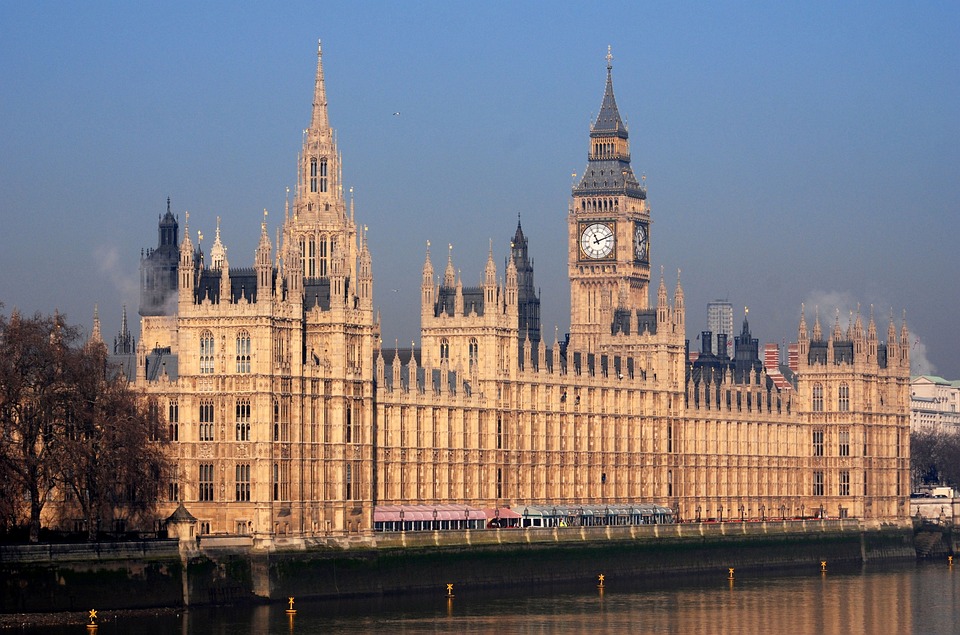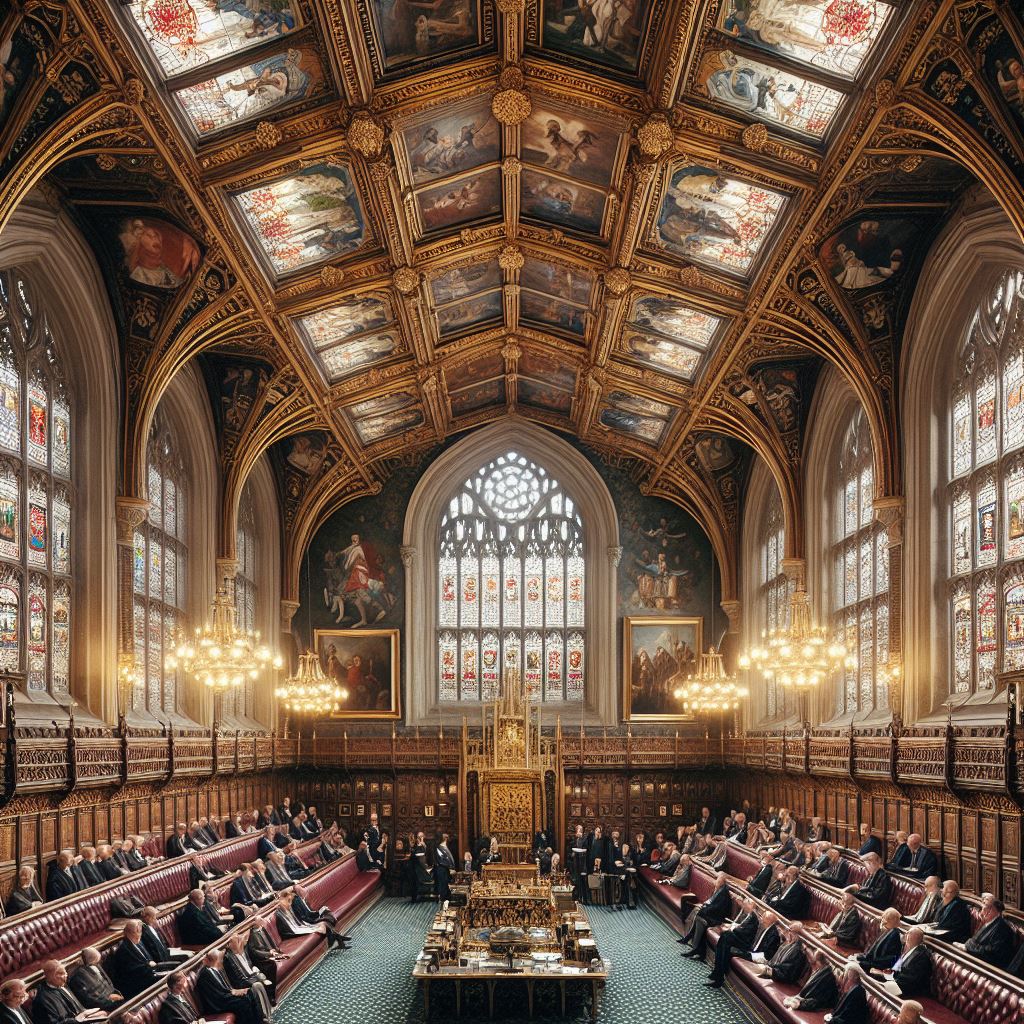Image generated by Bing Image Creator by Designer.
The Labour Party no longer promises radical reform in its first term in office, should it win the upcoming general election. Following uncertainty last week, the deputy leader has announced that the promised £28bn for a ‘green investment plan’ is no longer regarded as a ‘binding target’. It has also altered its plans to reform social care, dropping plans to create a new social care service in its first term.
One of Labour’s more radical policies had been to abolish the House of Lords. But this kind of fundamental change to the constitution threatens Labour’s chances in the rapidly approaching general election. Such a move risks strong scrutiny from the Conservative Party, opposition from the right of the Labour party, and rejection by the British people. Redirecting their manifesto towards more practical policies, tackling the important issues that matter the most in the British people’s daily lives, is a sensible move ahead of the election.
How does the UK Parliament work?
The British parliament is composed two chambers, the House of Commons and the House of Lords. A system that consists of two chambers is called ‘bicameral’. Other countries, like Denmark, have a ‘unicameral’ parliament, where there is only one chamber. The purpose of bicameralism is to prevent one part of the government gaining too much power. The two chambers sometimes act together, at other times they get in each other’s way, preventing poorly drafted or harmful legislation becoming law.

Although the House of Lords is unable to veto laws made in the House of Commons,[1] it is able to effectively scrutinize laws them. It does so by debating, amending, and delaying legislation without having the power to strike down laws made by a democratically elected parliament.[2]
By appointing its members, rather than electing them, Britain ensures experts can sit in the House of Lords. The fact that they are appointed without a term limit means they do not have to follow the instructions of the party they belong to, but can think and act for themselves.
Lords Reform in the Past
The Labour Party has threatened to abolish the House of Lords for some time, though it has never lived up to its promises to do so. The party opposed the House of Lords from its formation in 1906,[3] adopting abolition as a manifesto pledge in 1979. The Blair government aimed at complete abolition, settling for the separation of the Supreme Court from the House of Lords and a significant reduction in the number of hereditary peers.[4] In a 2022 report by a commission on Britain’s future, led by former prime minister Gordon Brown, the party set out plans to replace the House of Lords with an ‘Assembly of the Nations and Regions’.[5]
It is noteworthy that that most nations with two legislative chambers argue about how they should be structured and what their roles should be.[6] As Russell says:
What about the Cost?
Fiscal responsibility is seen as crucial to Labour’s success in this election as they ‘look for “radicalism” in reforms that don’t cost the taxpayer’. Labour’s plan to adopt so-called ‘Securonomics’ and the fact that it is ‘sticking to Conservative-style fiscal rules’ demonstrates its commitment to avoid shocks to the economy. This is especially important given the ongoing economic and financial stresses on the global economy.
Labour also addresses concerns about Britain’s preparedness to respond to threats to national security, responding to ongoing conflict in the Ukraine and the Middle East. One of Labour’s ‘Strong, Stable, and Secure Foundations’ is to strengthen the armed forces, renew NATO commitments, and legislate for a new ‘Armed Forces Commissioner’.[8] Responding to these issues is of critical importance for Britain’s future. Any government’s ability to do so will be significantly hampered by yet another a drawn-out battle about the constitution.
By appointing its members, rather than electing them, Britain ensures experts can improve legislation without the ability to strike down laws made by a democratically elected parliament.
Changing the House of Lords would be horrendously expensive. Not only would the consultation and drafting process cost millions of pounds, but so to would the cost of holding a referendum on any potential changes. Furthermore, one of the current benefits of the House of Lords is that the peers who sit in it do not receive a salary.
Though they have an expenses allowance, Lords receive far less money in return for their service than MPs who sit in the House of Commons, whose salary is now over £91,346. If Britain were to adopt an elected upper chamber, it would nearly double the cost of keeping parliament running.
Do we need another Brexit?
The complexity of restructuring the upper house of the British legislature has frustrated attempts to do so since the 1911 Parliament Act. Though the modern House of Lords is radically different from the House of Lords of the 1890s, it has been allowed to grow into its current form through over a century of evolution.
The Labour Party plans set out in 2022 constitute a bigger change to the British political system than has been achieved in over a century. Reforming the House of Lords would be complicated, expensive, and time consuming. This is not something a Labour government, returning to the executive for the first time for fourteen years, should undertake.
Reforming upper houses is a complicated issue. Although this doesn’t mean there is no benefit to constitutional reform, it is important to be aware that doing so will take years of debate, consultation, drafting, and redrafting. Britain doesn’t need another Brexit.
The size of its majority would partially dictate Labour’s ability to pass radical legislation, but so would fiscal constraints. Given the ongoing economic and financial stresses on the global economy, and increasing security concerns, it seems unlikely a radical Labour government would have the ability to achieve its objectives.
Appetite in Britain for another protracted episode of constitutional wrangling will remain low as long as more immediate concerns, like the cost of living crisis and global security issues, affect daily lives. Setting radical constitutional reform aside is a step in a positive direction for the Labour Party.
[1] Parliament Act 1911c.13, §2.
[2] Russell, Contemporary House of Lords, pp.243-4; 271; 281; 294.
[3] Dorey, Labour Party and House of Lords Reform, p.600.
[4] Constitutional Reform Act 2005c.4, Part 3; House of Lords Act 1999c.34.
[5] Labour, A New Britain, pp.139-143.
[6] Russell, Reforming the House of Lords, p.339.
[7] Russell, Reforming the House of Lords, p.266.
[8] Labour, Let’s Get Britain’s Future Back, p.4.
Legislation
- Constitutional Reform Act 2005
- House of Lords Act 1999
- Parliament Act 1911
Publications
- Helm, Toby, and Michael Savage, ‘Labour ditches radical reform as it prepares ‘bombproof’ election manifesto’, The Observer, (3 February 2024), <https://www.theguardian.com/politics/2024/feb/03/labour-ditches-radical-reforms-as-it-prepares-bombproof-election-manifesto> [accessed: 05/02/2024].
- Labour:
- ‘1979 Labour Party Manifesto: The Labour Way is the Better Way’, Archive of Labour Party Manifestos, <http://labour-party.org.uk/manifestos/1979/1979-labour-manifesto.shtml> [accessed: 05/02/2024].
- A New Britain: Renewing our Democracy and Rebuilding our Economy. Report of the Commission on the UK’s Future, (Newcastle: Labour Party Central, 2022).
- ‘Get Britain building again’, <https://labour.org.uk/missions/economic-growth/> [accessed: 05/02/2024].
- Let’s Get Britain’s Future Back, (London: David Evans for the Labour Party, c.2024).
- Rigby, Beth, ‘Labour will look for ‘radicalism’ through reform rather than risk fiscal slip-up’, (2 February 2024), <https://news.sky.com/story/labour-will-look-for-radicalism-through-reform-13062317> [accessed: 05/02/2024].
- Russell, Meg:
- Reforming the House of Lords: Lessons from Overseas, (Oxford; New York: Oxford University Press, 2000).
- The Contemporary House of Lords: Westminster Bicameralism Revived, (Oxford: Oxford University Press, 2013).
- Scott, Jennifer, ‘Labour’s Reeves won’t commit to £28bn pledge – after being asked 10 times’, Sky News, (1 February 2024), <https://news.sky.com/story/rachel-reeves-refuses-to-commit-to-labours-28bn-green-investment-pledge-13061410> [accessed: 05/02/2024].
- Sparrow, Andrew, ‘Rayner says Labour still wants to spend £28bn on green investment but won’t be bound by ‘arbitrary’ number – as it happened’, (2 February 2024), <https://www.theguardian.com/politics/live/2024/feb/02/labour-28bn-green-investment-pledge-keir-starmer-rachel-reeves-uk-politics-live> [accessed: 05/02/2024].
- ‘UK armed forces not ready for high-intensity war, MPs warn’, BBC News, (4 February 2024), <https://www.bbc.co.uk/news/uk-politics-68181275> [accessed: 05/02/2024].




One thought on “Shrewd Starmer Makes the Decision Not to Exploit the Constitution”